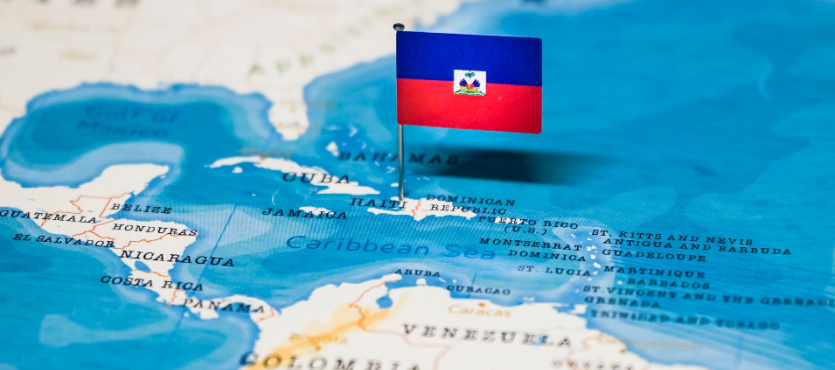Probably not. Violent crimes have dropped in the troubled island nation, mostly because a vigilante group has intimidated street gangs, according to a recent report.
However, the situation in the Caribbean country remains extremely volatile as heavily armed gangs continue to drive a humanitarian crisis that has displaced tens of thousands amid frequent kidnappings for ransom, gang rapes, tortures, and murders.
The vigilante movement, known as Bwa Kale, began after residents of the capital, Port-au-Prince, lynched and set fire to over a dozen suspected gang members in the early morning of April 24.
Human Rights group CARDH said “almost no” kidnappings had been recorded in the last month and counted 43 gang-linked murders, down from 146 in the first three weeks of April.
Situation in Haiti
Extreme natural disasters, like the mammoth 2008 Haiti earthquake, often make good situations bad. But in this case, the earthquake made a bad situation worse.
In the early 1800s, the world’s first slave republic started behind the eight-ball. During its colonial rule, France stripped almost all the natural resources from St. Domingue. The strategy worked well for France. By 1760, this colony was the most profitable European colony in North America. The slaves revolted in 1791. In 1804, the last French troops left Haiti. Legendary commanders like Toussaint Louverture get much of the credit, but in reality, French disease-related deaths greatly outnumbered combat-related deaths. Between 24,000 and 100,000 Europeans died during the war, mostly because of an 1802 yellow fever epidemic. Between 100,000 and 350,000 Haitian ex-slaves died in the revolution as well.
The victory was short-lived. In 1825, French King Charles X sent a squadron of warships to Port-au-Prince and threatened to re-occupy the country unless Haiti paid a large bounty.
As mentioned, Haiti could not possibly stand up to the French. Furthermore, the new republic had very few friends. Because of the slavery issue, the United States did not recognize Haiti until the Civil War, after Southern states seceded. Therefore, the Haitians had no choice but to take on a huge debt that the country did not pay off until 1947.
Between 1825 and 1986, an almost uninterrupted string of military dictators, who cared little about the people, ruled Haiti. Just as the island nation appeared to be on the right track, the train derailed in 2008. A country with such a poor economic foundation could not possibly survive such a disaster. On top of that, the IMF has recently threatened to cut fuel subsidies.
As a result, Haiti is in a socioeconomic and political tailspin marked by riots, protests, widespread hunger, and increased gang activity. As of early 2023, Haiti has no remaining elected government officials. Some international observers have officially declared that Haiti is a failed state.
Many government officials have written off Haiti. The contractors who remain there, most of whom work for the U.S. State Department, must somehow provide some stability and give ordinary Haitians a glimmer of hope.
Contractors and Armed Gangs
The glimmer of hope may be coming from an unexpected palace. However, it is hard to get too excited about vigilante justice. Once “justice” is done, the vigilantes become another armed gang. Believe it or not, there was once a time when private military contractors were essentially armed gangs who, like the street gangs and vigilantes of Haiti, committed violent acts for the highest bidder.
The Pinkertons, a detective agency founded around 1850, may have been America’s first private military contractors. During the Civil War, paid Pinkerton detectives, who were basically thugs, served as CIA and Secret Service agents. Neither agency existed at the time.
After the Civil War, the Pinkerton Agency discovered that private-sector work was much more lucrative than public-sector work. Rich industrialists hired Pinkertons as strikebreakers, most notably in the 1892 Homestead Strike.
A steel factory lockout and strike lead to a pitched battle between union tough guys and Pinkerton detectives. By the time the National Guard restored order, a dozen people were dead, about three times that many were injured, and about ten times that many were missing.
A year later, in the waning days of his term, Republican President Benjamin Harrison, who disliked unions and violent domestic disturbances, signed the Anti-Pinkerton Act. This law regulated Pinkerton-like strike busters and prohibited government agencies from employing private military contractors.
Contractors were good boys for the next seventy-five years. For example, the Pinkerton Agency got out of the busting-heads business and rebranded itself as a risk management and personal security company. In the World Wars, Korea, and Vietnam, contractors served as chefs, mechanics, and other support personnel.
As a result, in 1978, the General Accounting Office suspended the Anti-Pinkerton Act sentence and declared that government agencies could hire military contractors under certain conditions. These conditions include administrative and civil oversight.
Injury Compensation Available
In 1941, the Anti-Pinkerton Act was still in full force and effect. Lawmakers demonstrated rare foresight when they passed the Defense Base Act. This law set up a privately-funded, no-fault insurance system that compensates injured overseas contractors for their lost wages and medical bills.
Most DBA victims receive two-thirds of their average weekly wage for the duration of their temporary or permanent disabilities. Additionally, the insurance company must pay all reasonable necessary medical expenses, from the initial onsite injury triage to the final physical therapy session.
No fault does not mean no problem. Insurance company lawyers routinely contest the amount of damages in these cases. For example, an adjuster might refuse to pay for a helicopter medevac trip, arguing that surface ambulance transportation would have been just as good.
A DBA lawyer stands up for victims in these situations and helps ensure that the insurance company meets its legal and financial obligations.
For more information about DBA benefits, contact Barnett, Lerner, Karsen, Frankel & Castro, P.A.

